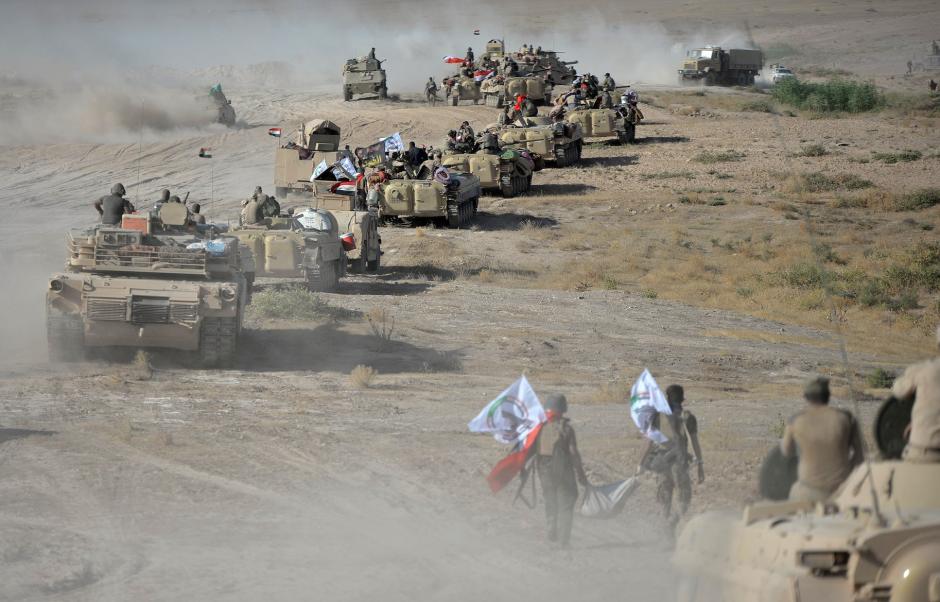Beirut, New York- The US-led coalition carried out an air strike to block ISIS terrorists evacuated from Lebanon from reaching eastern Syria, and then Iraq.
“To prevent the convoy from moving further east, we cratered the road and destroyed a small bridge,” said Coalition spokesman Ryan Dillon.
He also confirmed that a US-led bombing raid had blocked the convoy’s route through Syrian city of Abu Kamal.
Abu Kamal is a strategic city on the Euphrates river in the Deir ez-Zor Governorate of eastern Syria near the border with Iraq.
Tehran-backed Lebanese militia Hezbollah had struck a deal with ISIS fighters to withdraw on Monday to clear armed militants along with their families from areas nearby the Lebanese-Syrian borderline.
The announcement of the transfer ultra-hardline militants from the Lebanese-Syrian border to the Syrian-Iraqi border has angered Iraqis and was criticized by Americans.
“Alternatives are now being sought on re-routing to ISIS-held Hamimah near the borders with Iraq,” Syrian Observatory for Human Rights Rami Abdulrahman told Asharq Al-Awsat.
A few hours ahead of the airstrike, the observatory announced that the convoy transporting those evacuated from Damascus’ western rural areas, had taken a stop near Hamimah.
Ambiguity covered the convoy and the reasons as to why it had paused.
Calling for creative ways to work towards peace in Syria, the United Nations Special Envoy Staffan de Mistura on Wednesday outlined the political path forward, which includes holding another round of the so-named Astana talks and behind-the-scenes efforts by the international community.
“This is a time for realism and focus, for shifting from the logic of war to that of negotiation, and for putting the interests of the Syrian people first. If I could identify one thing above all that can make the difference, it will be a sense of unity of purpose internationally with clear priorities and common goals,” de Mistura told the Security Council.
The UN official also noted the key role that Saudi Arabia and other countries with influence over the opposition have in fostering “cohesion and realism of the opposition.” Mr. de Mistura said his office is ready to convene further technical talks to support Saudi efforts on unifying the opposition.
He added, “it is my hope that both the Syrian Government and the opposition will come to Geneva then to engage in formal negotiations.”
